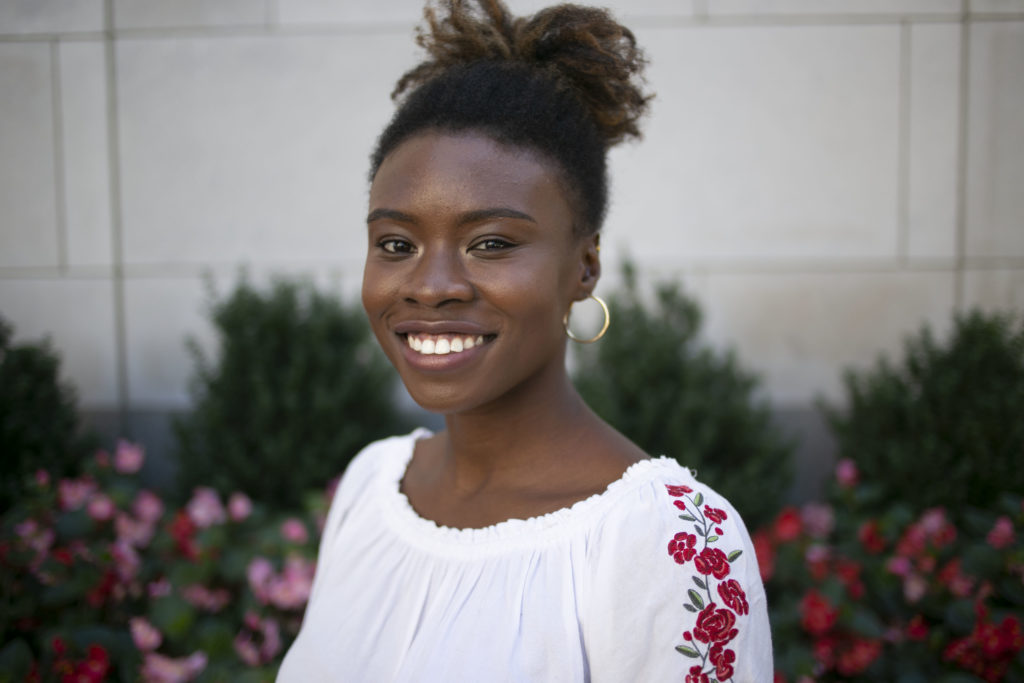Elikem Togo is a first-year Ph.D. student at the University of North Carolina Chapel Hill where she is majoring in Maternal and Child Health and minoring in Epidemiology. In the summer of 2021, she graduated from Drexel University with an MPH in Community Health and Prevention with a minor in maternal and child health. Her research interests include sexual and reproductive health, global maternal and child health, and access to family planning services. She looks forward to continuing to pursue her studies and research interests throughout her Ph.D.

In the summer of 2020, I had the pleasure of working as a Title V Intern with the Wisconsin Division of Public Health. It was an excellent opportunity to gain practical MCH experience in a government setting and work with an interdisciplinary team of MCH experts from government and community agencies. Through this experience, I was able to master MCH Competency 5: Communication. I worked with another intern where we collaborated on three main projects: a state-wide MCH database, a social media strategy plan, and a community feedback survey. Due to the COVID-19 pandemic, this internship was conducted entirely online. Since I didn’t have the luxury of desk-side chats or coffee runs with my colleagues to connect, I heavily relied on communication in the form of weekly meetings, countless emails, and phone calls.
Communication from an administrative standpoint was essential. I met with my partner weekly to discuss tasks, action items, and our goals for the following week. It was also crucial for us to maintain constant communication with our preceptors, as they supported our project tasks. We met with them weekly to discuss our progress and ask questions about our project tasks. My instructors and partner made themselves readily available outside of our scheduled weekly meetings, so it was easy to maintain constant communication with them throughout the internship. I made sure to do the same.
Health communication was also a key factor in our projects, particularly for the social media strategy plan and the community feedback survey. During the second week of the internship, one of my preceptors swiftly put together a workgroup of other MCH staff to assist my partner and me with social media content creation and our dissemination plan. In addition to this sharing strategy, we created a low-tech plan to ensure equitable access to the material shared online. The workgroup provided helpful feedback and creative suggestions on how best to reach some of the state’s most isolated and rural communities. Through the workgroup, I also learned how to create social media content that is readable and visible to anyone experiencing color vision deficiency. This insight helped me and my partner ensure we were creating social media posts that are inclusive and could be understood by anyone, no matter their abilities. Delivering messages in an equitable manner is an important part of health communication. For the community feedback survey, my partner and I had the opportunity to interview community members and MCH staff for their input on developing a survey. Interacting with community members gave me a unique, first-hand experience of reaching isolated communities in the state best. During one of my interviews, a community member from rural Wisconsin shared that the best way to disseminate information in her community was through the milk haulers and agricultural businesses. They shared monthly updates on farming and agriculture news, which most community members read. Had it not been for this opportunity, I would never have learned about this unique dissemination method.
In eight weeks, I learned so much about MCH practice, interdisciplinary collaboration, and of course, communication. The virtual format of the internship did not take away from the rich experience. I had consistent access to my partner, mentors, other fellow interns, and the other Title V internship staff, allowing me to accomplish my project tasks collaboratively. Working from home has reminded me that establishing communication channels early on is imperative to the success of any project, and I carried this practice into my virtual classes in the fall. I look forward to applying the communication skills I learned in the internship to future virtual and in-person opportunities!

